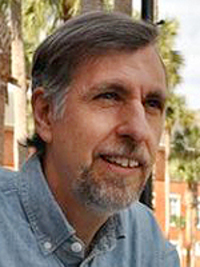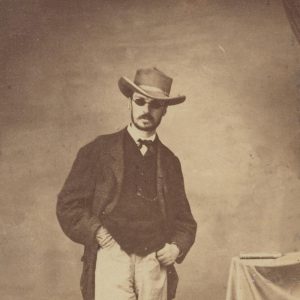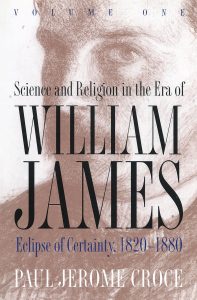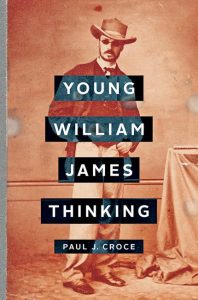For a better future, study the past.
For a better future, study the past.

Dr. Paul J. Croce has been a mainstay, serving as a professor in the History and American Studies departments at Stetson University for over thirty years. To say that he has positively impacted the lives of thousands of students would not be an understatement. I am one of those students.
When I was a student, Dr. Croce taught several of the courses I took. Recently, he and I had the opportunity to reconnect and now may have a chance to do a bit of collaboration in the future. I jokingly reminded him I may have been his poorest student ever. He was quick to say it wasn’t necessarily that. He said he remembers seeing I had the interest and potential but that I wasn’t engaged. There was something else going on at the time.
Dr. Croce made the point that education and teaching are the long-range game. Results are not always immediate, and just like in my case, the results may show years down the road and that is part of what is so rewarding about being a professor. For students attending Stetson University, I can strongly recommend carving out a time to take one of Dr. Croce’s courses. You will learn a lot and appreciate the time you spent in his classroom. I remember him as being a caring and concerned instructor. He wanted you to succeed but yet made you think and examine issues for your self. He always had time for students as well.

Dr. Croce is one of the leading scholars on William James, the founder of American psychology and pragmatism. James’ twelve-hundred-page masterwork, The Principles of Psychology (1890), is a rich blend of physiology, psychology, philosophy, and personal reflection that has given us such ideas as “the stream of thought” and the baby’s impression of the world “as one great blooming, buzzing confusion” (PP 462).
Dr. Croce received his B.A. degree from Georgetown University and his Ph.D. from Brown University. He began his career at Stetson University in 1988. He was the 1998-1999 and 2010-2011 recipient of the Hand Award for Research, Creative, and Professional Activity at Stetson. He is a past President of the William James Society and currently serves as a Fellow for the organization. You can learn more about Dr. Croce at his website, Pub Classroom. This site is an interactive effort. As Dr. Croce states, he wants to hear from you. He goes by the mantra made famous by the beautiful Pat Benatar, “Hit Me with Your Best Shot.”
As mentioned, Dr. Croce is a scholar of William James and has published extensively on James. I recommend reviewing Croce’s Google Scholar page to review the impressive list of journal articles he has penned. His full-length works are referenced below.
 Science and Religion in the Era of William James. Chapel Hill: University of North Carolina Press. 1995. ISBN 9780807845066, $49.95.
Science and Religion in the Era of William James. Chapel Hill: University of North Carolina Press. 1995. ISBN 9780807845066, $49.95.
In this cultural biography, Paul Croce investigates the contexts surrounding the early intellectual development of American philosopher William James (1842-1910). Croce places the young James at the center of key scientific and religious debates in American intellectual life between the 1820s and 1870s. Early in the nineteenth century, most Americans maintained their scientific and religious beliefs with certainty. Well before the end of the century, however, science and religion had parted company, and, despite the endurance of religious convictions and widespread confidence in science, professionals in both fields expressed belief in terms of hypotheses and probabilities rather than absolutes. Croce highlights the essential issues debated during this shift by investigating the education of James and the circle of intellectuals of which he was part. In particular, the implicit probabilism of Charles Darwin’s theory of natural selection, especially as interpreted by Charles Sanders Peirce’s recognition of the fallibility of knowledge, set the stage for James’s reconstruction of belief based on uncertainty.
 Young William James Thinking. Baltimore: Johns Hopkins University Press. 2017. ISBN 9781421423654, $57.00.
Young William James Thinking. Baltimore: Johns Hopkins University Press. 2017. ISBN 9781421423654, $57.00.
By going to the sources, Paul J. Croce’s cultural biography challenges the conventional contrast commentators have drawn between James’s youthful troubles and his mature achievements. Inverting James’s reputation for inconsistency, Croce shows how he integrated his interests and his struggles into sophisticated thought. His ambivalence became the motivating core of his philosophizing, the heart of his enduring legacy. Readers can follow James in science classes and in personal “speculations,” studying medicine and exploring both mainstream and sectarian practices, in museums reflecting on the fate of humanity since ancient times, in love and with heart broken, and in periodic crises of confidence that sometimes even spurred thoughts of suicide.
